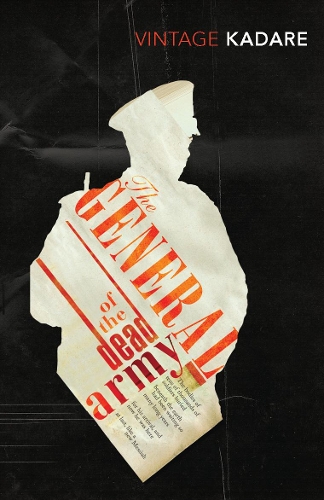
General Of The Dead Army
(Paperback)
Publishing Details
General Of The Dead Army
By (Author) Ismail Kadare
Introduction by David Smiley
Translated by Derek Coltman
Vintage Publishing
Vintage Classics
15th December 2008
4th December 2008
United Kingdom
Classifications
General
Fiction
891.99133
Physical Properties
Paperback
272
Width 130mm, Height 197mm, Spine 18mm
194g
Description
Albania- once a battlefield, now a charnel-house. And yet, life goes on . . .This sweeping epic of post-war Albania was Kadare's first novel. Twenty years after the end of the Second World War, an Italian general is despatched to Albania to recover his country's dead. Once there he meets a German general who is engaged upon an identical mission, and their conversations brings out into the open the extent of their horror and guilt, newly exacerbated by their present task. As they descend from the callous trivialities of their gruesome business, past and present, to suffering self-disgust, the author gives us glimpses of the lives of the people whose graves they are unearthing.
Reviews
He has been compared to Gogol, Kafka and Orwell. But Kadare's is an original voice, universal yet deeply rooted in his own soil * Independent on Sunday *
A novelist of dazzling mastery -- Paul Binding * Independent *
Astonishing...his finest work -- Azar Nafisi, Man Booker judge and author of 'Reading Lolita in Tehran' * Guardian *
With its metonymic realism and fidelity to its characters, The General of the Dead Army reminds us why his work is so valued * New Statesman *
Literary gold dust - haunting, bleakly comedic and ultimately horrific * The Times *
Author Bio
ISMAIL KADARE, born in 1936 in the mountain town of Gjirokaster, near the Greek border, is Albania's best-known poet and novelist. Since the appearance of The General of the Dead Army in 1965, Kadare has published scores of stories and novels that make up a panorama of Albanian history linked by a constant meditation on the nature and human consequences of dictatorship. "Dictatorship and authentic literature are incompatible," he wrote. "The writer is the natural enemy of dictatorship." His works brought him into frequent conflict with the authorities from 1945 to 1985. In 1990 he sought political asylum in France, and now divides his time between Paris and Tirana. He is the winner of the first ever Man Booker International Prize.
